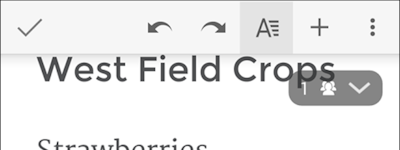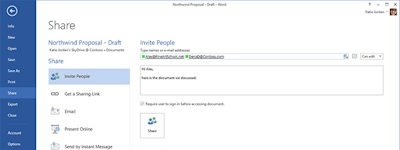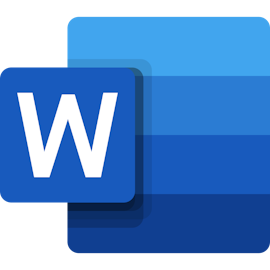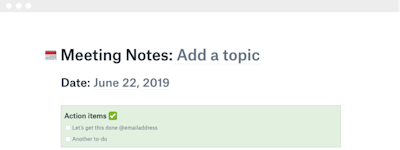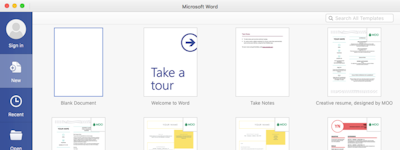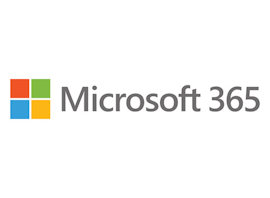17 years helping Australian businesses
choose better software
Scrivener
What Is Scrivener?
Proofreading solution designed to help writers, novelists, and students arrange researched data, notes, and references into manageable sections. The platform enables team members to add comments and annotations, insert images, edit text size, and highlight phrases in the document. Scrivener also allows businesses to set word or character targets, track the progress of revisions, use labels to color-code specific sections of the write-up, and auto-save projects on a unified interface.
Who Uses Scrivener?
Proofreading solution that helps writers, novelists, and students with preset formatting, file importing, corkboards, metatags, templates, automated document listing and more.
Not sure about Scrivener?
Compare with a popular alternative

Scrivener
Reviews of Scrivener

Nothing Beats Scrivener for Writers
Pros:
Scrivener is endlessly flexible, fitting any way you can think of to help you write the best prose you possibly can and print it in just about any way you may need, including producing files suitable for publication in online bookstores such as Amazon. The complexity does, however, make the program intimidating to beginning users. It helps if a user makes a conscious decision to learn and use only the bare bones at first, but it can be difficult to figure out what bare bones to use and where they are. It helps a lot, though, that Googling Scrivener along with a function of the program will produce dozens of how-to articles. After all, Scrivener is designed for writers, and a good number of them write about Scrivener!
Cons:
I reluctantly admit that I haven't yet talked myself into tackling the learning curve on printing out anything but the simplest of documents from Scrivener. I'm sure it was worth it to many writers in the past who needed to produce publication-ready manuscripts, but these days Vellum is available for the Mac and Atticus can be bought for either Apple or Windows computers. Both are much easier to use.
The Only Thing You Need to Write a Novel with.
Comments: I love Scrivener. Been using it for a long time, at least seven years. I could never go back to Word or contemplate using Google docs. The software is a beast for authors. Based on the price point, the free upgrades, and zero subscription fees is worth it alone.
Pros:
Scrivener makes it easy to write a full length novel. It was next to impossible for me to not just keep track of my manuscript in Word but to jump around the document to random scenes. I love the binder and the inspector features. The way the software is designed it's an all-inclusive word process with tools to help me keep my manuscript organized which means more time spent on writing.
Cons:
The only con is that it takes a quite a bit of a learning curve. If you want to use the simple word processing features then no added lessons needed. However, if you want to use the other features, which aren't necessarily obvious, be prepared to take a course in how to use the software. It's the only way I was able to unlock/figure out all the features I love using currently.
Don't Believe the Hype: Scrivener is Awful and You Will Hate it - Avoid It and You Will Thank Me!
Comments: There are no functions for increasing or decreasing indent unless you want to go back to using the tab key constantly and if you do this in a list? Fugitaboutit. Scrivener 3 will remove the line from your list altogether as it assumes you didn't there anyway. It is awful software. Try to set the margins on Scrivener like you would on ANY free or paid word processing software. Go ahead, I'll wait...can't figure it out? That's because you can't do it. Scrivener 3 will set your margins as it sees fit and you will like it. Yes, the YouTube ladies will tell you that you can but good luck getting Scrivener to consistently set them and leave them. You'll be fighting page setup constantly with this software. How about leading on the text or "line spacing" as many word processors call it? Can't do that either. The whole document defaults to this weird 1.5 line spacing which is nearly impossible to change and keep changed. You'll be fighting line spacing for your entire document. This is an absolute travesty of an experience, Scrivener is trying to be smart about all the ridiculous carnival features it thinks you would actually use and in reality, none of its developers have ever tried to write a long form project using their own software...that is obvious. I could go on and on about the failure to process inserts like tables and pics and how these are a nightmare to format in your work or how you can't just add page breaks in a given paperback format or how you have to "complie"
Pros:
Project management allows you to break down the document into various sections which act as separate files. This is great for project management or storyboarding but an absolute nightmare for writing a long form document like a book or thesis paper.
Cons:
I have used this software for a couple months now and I absolutely hate it and for good reason. You cannot format text like you can in a free word processor like Open Office or in paid software like Word. They like to say you can but I'm here to tell you that you can't. Forget formatting lists in this garbageware. Scrivener 3 will format it as it sees fit and you will like it and just for fun, Scrivener will format it completely different under the exact same settings the next time you want a list. The format font is courier or Times and good luck trying to change that. Oh, you can change it alright, but it won't matter as every new line you type will be in the Scriver 3 font - not the one that that rest of the document OR in the defaults settings which you changed originally. No, Scrivener 3 will type in the font it chooses - either Courier or Times and you will like it. Fake reviews and YouTube videos tell you to set up your styles in the "styles" pallet but good luck getting Scrivener to actually set the style consistently in the style you saved in the palette. Ultimately, you will be fighting formatting constantly.
Every writer needs this software
Comments: I love it. It’s so helpful once you get the hang of it.
Pros:
I was having trouble with the pace of my books and this software has helped me so much. I’m always top ten in my genre with every release now.
Cons:
I wish the proofreading was more thorough. It catches misspelling but not grammar. I wish it had that so I don’t have to scan my document with additional software.
Alternatives Considered:
Scrivener... A Work Library for All My Masterpieces
Comments: I have tried other writing tools, but I keep going back to Scrivener. Once I learned how to maximize the platform there hasn't been another tool l've liked more!
Pros:
Scrivener makes keeping my writing organized super easy! I love the fact that I can use it both on my computer and my phone.
Cons:
It took a while to get the hang of some of the features, but it was worth the work!
Writing's on the Wall
Comments: I generally love it. It's my go to software for writing and compiling documents for books, presentations, trainings, business plans, and SOR, and much more I'm probably forgetting. Overall very positive. And if I recall when I had interactions with support they were responsive and extremely helpfully. I think it was related to installing on a second computer.
Pros:
I like that I can map out, plan, write, rearrange, reorder, and edit, documents easily. In my case this is presentation scripts, books, and also business plans, and SORs. It's so nice to just be able to move sections of writing around easily. Which leaves time for just writing without worrying about the order.
Cons:
There's little I didn't like about it. I know I'm only scratching the surface with what I use it for, even as a writer, marketer, and author. So nothing stands out as an 'I don't like' for me.
Best novel-writing software
Pros:
I've been using Scrivener for over five years as a fiction writer, and I love having all my materials in one place--outline, character profiles, location info, research and more. And the word processing feature is robust and makes it easy to break my writing up into chapters or scenes. I use it for all my first drafts.
Cons:
There's definitely a learning curve if you want to get the most out of its features, but they've gotten better with tutorials and walk-throughs than it was when I first started using it. Other than that, I think it's a fantastic tool for authors.
Scrivener is the gold standard of writing software
Comments: I've been using Scrivener for years. I like that it's flexible in that I can use the features that I find helpful and not worry about ones I don't need.
Pros:
Scrivener is as easy or complicated to use as you want it to be. You can get started quickly, then learn more about it's more advanced features as you need them.
Cons:
About the only thing I don't like about it is that it's rather dull visually. For some people, however, this might be a plus, as it isn't distracting when you're writing.
Alternatives Considered:
The Gold Standard
Comments: What I love most is "everything all in one place". And easy to use basic functions immediately... and then adding using features as I discover them or need them.
Pros:
Unbelievable value for the price. Amazing amount of features.
Cons:
Granted... the learning curve for all the features is steep at times.
If you need to really organize writing projects and not just write them
Comments: Scrivener makes light work of complicated documents and writing projects.
Pros:
We use scrivener when we have a writing project with lots of working parts, not just text but other pieces as well that we need to organize. The corkboard feature is the number selling point for us.
Cons:
Sometimes it can be a little clunky/slow.
Scrivener is THE writing app
Comments: I've been using Scrivener since 2.0 from about 2016, and have written over a million words using it. I primarily have used it to write blog posts and for all my freelance client work. It has made me so much more organized than having to look through hundreds of documents on my MacBook. While there are a lot of menus and features, it is possible to customize the interface, and also to enable a distraction-free writing mode. When most writing software has now moved to a subscription model, Scrivener still remains a one-time purchase, and is the best value on the market. For writers, Scrivener is the only app you need.
Pros:
The organization features. Scrivener has the best organization from any writing software I have ever used. At first the interface looks highly complicated, but after a few hours, it is easy to get used to it. Being able to write long-form projects in different documents and then effortlessly rearrange them has been a game changer. I kept all of my client work inside Scrivener by creating different folders, and then also tagging each document based on the status of completion.
Cons:
The only con is the online syncing via Dropbox. It is not as user-friendly and reliable as other software which integrates with iCloud.
A great tool for authors
Comments: I like it for plotting and brainstormning, but gave up on using it for drafting pretty fast.
Pros:
I like the planning tools best, like the character templates and setting notes and all the ways to customize them.
Cons:
Actually drafting in Scrivener is difficult and I never did figure out how to convert documents to Word files.
The best tool
Comments: I really love it. I first got it after a Nanowrmo and have loved it every since.
Pros:
Amazing tool for writers. You can have it all in the same file and work on your projects without losing anything.
Cons:
I find it hard to think of cons. The only thing is that sometimes the file you export from it is a bit funny when exported into other programs, but it is not a big deal.
Can't start a book without it
Comments: I use Scrivner to write all my books- I plot it first and then I can see the scenes and chapters clearly.
Pros:
I can inport my outline from Plottr. I can see all my characters and places in real time. I can use it for my series of books and therefore do searches of scenes and people.
Cons:
In a way, there are too many functions available and it can be overwhelming at times. Sometimes I have difficulty finding my book on the left side as the binders confuse me.
Scrivener review
Comments: Scrivener is a great tool that has helped to improve my productivity while writing.
Pros:
Scrivener's use of folders and pages makes it easy to break down a piece of writing into its composite parts. Its drag-and-drop support also allows for easy editing.
Cons:
The learning curve is a little steep, and it took me a while to get used to the software.
Amazing Software for "Re-writers"
Comments: Getting a software of this level for writing an essay or a blog post is an overkill. But anyone who is dealing with writing thousands and thousands of words that are at some point supposed to make a coherent whole, are likely to encounter blocks along the way that will just end up feeling overwhelmed. Writing is ultimately about re-writing, writing drafts fast and then writing even better drafts, and being a good editor when it is time to take a more critical look at your work and "to kill your darlings" as [SENSITIVE CONTENT HIDDEN] calls it. Scrivener makes this process easier. It's suitable for people who write for a living or create so much written content that at some point in their lives they have read a style manual to become better at what they do. It may be once-in-a-lifetime project such as a thesis or a writing career, but if you are writing longer texts (and preferably are a Mac user), this is a software to check out.
Pros:
Scrivener can be a great choice for those of us who are always unhappy with their writing and churn out draft after draft, rearrange paragraphs endlessly, outline meticulously, and are just get too obsessive-compulsive about the quality of their work. It simply helps to produce better work faster and get over the so-called "writer's block," which is the too-often-result of perfectionism. The benefits of Scrivener are fairly simple. In many ways it's more comparable to OneNote than Microsoft Word as the user is not limited to a page view. Behind the screens, Scrivener stores text as simple RTF files that the user can splice and dice into smaller pieces of text like "notes" that can be arranged and rearranged as the user wants. But unlike in OneNote, the writer can view multiple "notes" at the same time, which makes it possible to view your work as a complete text. And to someone like me who gets distracted, easily, this simple feature was revolutionary. I could "eat my elephant" in very small chunks and hide the rest of the text but with a few clicks review the whole. Scrivener also has a very powerful outline view, which makes it very easy to visualize even whole book projects. It has a Kanban-like feature called corkboard that allows users to add descriptions to chapters or paragraphs in order to create a more coherent large text project. Writing statistics allow gamification and myriad custom metadata options enable bending the software to your personal writing habits.
Cons:
I am a Windows user and Scrivener's team are clearly putting Mac users first. Scrivener 3.0's Mac version was made available in 2017 while Microsoft users are still in version 1.97. The latest version was initially promised to be ready for Windows users in late 2018, but after multiple delays it's now clear that the project is anything but a priority—which, sadly, made me eventually turn away from the software as for Windows users it's simply out of date with no light at the end of the tunnel.
An essential software for every kind of writer.
Comments: I feel so much less overwhelmed and more in control of my writing ever since I've switched to Scrivener. My writing experience is lightyears from the way it was back when I just used Word.
Pros:
I love the "binder" format of Scrivener, and having everything in one place as opposed to the old days of using Word, when I would have various documents and folders and spent a lot of wasted time going back and forth. With Scrivener, I can have notes in the margins, a folder for deleted bits I might need come back to later, random notes, character info etc. I also love being able to drag and drop scenes and even chapters around (and then back again, if needed!). Being able to see my manuscript in a linear form, and on cork board note-cards is also an authors dream! And even the small features, like being able to change the background when writing in full screen mode, helps me "get into the scene mindset" and get to work more quickly.
Cons:
A few times I have accidentally lost sections and can't quite figure out what I did. To be fair, I am very tech illiterate. And when I contact Scrivener customer service, they always help me resolve the issue really quickly - and are super patient and friendly. Another negative - that might be a positive to some people - is that the program is so powerful and and has so many features that I found it a bit overwhelming at first. However, I quickly learned which features were useful to me and then stopped stressing about all the others that I'm not using. For someone who has the time and inclination, Scrivener could likely be even more of a time saver than it is to dunce-level tech people like myself. I know there are a pile of tutorials on how to use these features, so one day I will get around to broadening my horizons even more.

Best book drafting software out there
Comments: The moment I switched to Scrivener to draft my fiction books, I never looked back. It's perfect to outline, draft, and do an initial edit, and it saves every keystroke which was very important for me. I use it almost every day and I never considered switching to anything else.
Pros:
Scrivener makes it easy to structure your project, it saves automatically whenever you type anything, and the word count per project and section make it easy to track your progress.
Cons:
It seemed daunting at first, before I figured out which features would work for me. There's a lot in Scivener that you you can get lost into, but about 20% of the features are what make it great to work, the rest is just clutter to me.
Doing research with Scrivener
Comments: I am using it for collecting information for my research and writing drafts. It helps me to be better organised. However, its licensing terms and compatibility issues between Mac and Windows version are off-putting.
Pros:
I do like many things in Scrivener. Even though it is meant mainly for writers, it has so many features and I am not using all of them. For me, it is usually the tool that I am often coming back to when I want to start some new research, collect information, store excerpts from secondary literature and write drafts. And it does it very well! I love especially the split view for documents and how easy it is to create new subdocuments and folders and move everything around. I love it. Also, it is great that one can add various icons to folders and documents. I also like a very generous trial version which allows you to use it for 30 non-consecutive days of use!
Cons:
Firstly, it would be great if there would be just one personal license that I could use both on Mac and Windows. I bought the version 2 for Mac but I am still hesitating to put money into the Windows version. The reason is that it would not be just one-time purchase but I would have to do a similar thing with every major update (they are, however, rare). Another issue for users of multiple platforms is that Mac version 3 is currently not compatible with the stable Windows version 1, only with the beta version 3 for Windows (there is no version 2 for Windows). And the beta version 3 is still not perfect and I experienced multiple (although smaller) issues with it. I perfectly understand that the team of Scrivener programmers is extremely small and that they are doing an unbelievable amount of work, however, this is still an issue for me and the waiting for the Windows version 3 is just long. There is iOS version but now Android version. (And yeas, Linux version would be also nice but it is probably essential.) Finally, there are a couple of minor complaints: - Handling of images could be much improved, especially their resizing is cumbersome. - Better integration of Scapple would be great. - Better compatibility between Windows and Mac version (hopefully it will be done with the final version of the Windows app) The main reason why I am not using Scrivener all the time is, in the end, its license and the lack of better mind mapping functions (like Scapple).
The go-to writing app that never disappoints.
Comments: In my line of work, I frequently edit research papers and theses. Scrivener makes this process easy and streamlines my workflow to a high degree.
Pros:
Scrivener offers a fantastic user interface that allows you to organize and edit complex projects and documents easily.
Cons:
It is a bit pricey, but not overpriced. Each new version of the software needs to be re-purchased. In my experience, the iPad and the desktop versions also need to be purchased separately. It would be nice if all versions could be accessible with a single purchase.
My favorite for writing fiction!
Comments: At first, I found Scrivener intimidating. Watching YouTube videos about Scrivener for Beginners was very helpful. I also printed out some cheat-sheets to keep on my desk for quick reference. But once I figured out the basic functions that I needed for what I'm doing, I was off and running. There's still a LOT of features I have never played with, but it's nice to know they're there if the need should ever arise. But I'm still looking for a character specific timeline feature. I've heard it's in there somewhere, in some form. But I have yet to locate it.
Pros:
I like that the creators of Scrivener have tried to anticipate the needs of a wide variety of users to make the software as useful as possible. I especially appreciate the versatility of the Compile function.
Cons:
The learning curve is HUGE if you want to use all of its features, and it isn't always intuitive.
Scrivener: For the Pros
Comments: Scrivener is one of the few pieces of software that I can give a perfect score. 10/10.
Pros:
Scrivener is a word processor that provides templates for different mediums, including fiction, nonfiction, screenplays, and more. It can be used to write novels (which is my primary interest), essays, letters, HTML—essentially anything that requires words on the page, all without the actual page. What makes it distinct from other word processors is the ability to write pieces in any order and move them around with ease. You can also incorporate research from another site or source, and keep it available in the background until you need it. There's a project-management aspect of Scrivener that I haven't used much, but it's nice to have the option available. Overall, it's an excellent piece of software that I use often.
Cons:
It's a very minor complaint, but I would love to have a build for Linux, so I can write on my practice computer. There was one a while back, but it is no longer available.
Can't go without it
Comments: I started using Scrivener around 8 years ago now. I love how organized it keeps my writing and how organized it keeps me. It has project trackers, word counts, various folders and resource tracking. I honestly cannot go a day without using it so it's open pretty much the entire time my computer is on. Whether I'm writing or just jotting down quick notes so I don't forget something. I've gifted copies to friends, recommended it to several people, it's absolutely essential in my day to day activities.
Pros:
I love having the ability to organize projects within projects. I have one document for fitness, one for flash fiction writing, and one for novels in progress. I can further breath those down into categories and chapters without having to create separate documents and I can keep it all very organized.
Cons:
If you come from simply using word or pages, there is a steep learning curve to understanding what scrivener can do for you. Especially since it can do so many things. Tutorials are an amazing lifeline to understanding this product

Indispensable for Writers
Pros:
There are several things that make it very useful for anyone writing: 1. There's a very good search feature that makes it easy to find a word or phrase throughout the document 2. It keeps track of daily and overall word counts, which is a metric most writers use for goals. 3. It has a great corkboard feature that allows you to setup each section and visually rearrange them to see how the project flows. 4. It has an active forum with great support.
Cons:
Due to its power, Scrivener has a fairly steep learning curve. I think the most difficult/confusing is in compiling the document, either to export it to Word or to create an electronic book (ebook). There are several settings that control how the document is compiled, and settings within settings, which create a myriad of choices. Even after watching the tutorials I was confused. The good news is that, for the most part, compile wors well using the default settings. You'll just have to expect to tweak the final product a little.
A great tool to collect any written information
Comments: I think more people that write blogs should give Scrivener a go, for me it has changed the way I work I can't speak more highly of it.
Pros:
I use this software to help me manage websites, blogs and ideas. It allows me to store everything in a an easy to use, easy to find way. I love how I can have two documents open side by side, and easily open other ones just with one click. I use this daily. It is my go to for anything I need tot type out. The ability to have reference material easily at hand is great. I know this is a tool for people writing books, and I'm sure it does that job well, but for my purpose I can't rate it highly enough.
Cons:
I wish there was a full blown android app allowing me to add info on the go. Also development seems to always get pushed out as we wait for the latest version.


